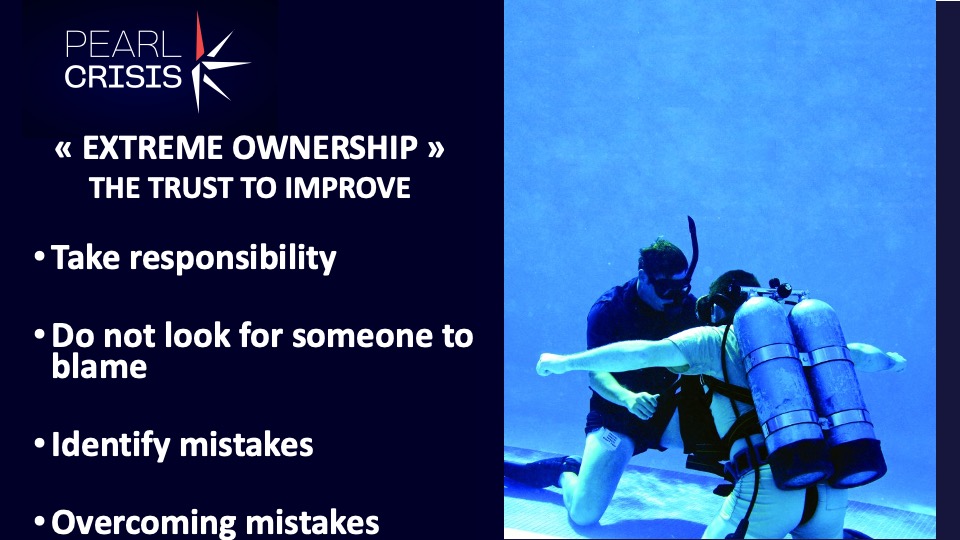“Know one thing above all else, I am responsible.”
A friend of mine recently told me a little story full of lessons.
At the time, he was serving in a special unit. This unit had just been bereaved by a tragedy in training.

Shortly afterwards, the commander of this unit, a charismatic figure, had called a few members of his unit around him to share the difficult experience of this unfortunate event.
When the commander announced his intention, the first reflex of the members of the meeting was to look for a culprit. There must be someone responsible for this story!
And naturally, very quickly, the second protective reflex is put in place: to deny one’s own responsibility, because nobody wants to be held responsible for an accident whose origin is diffuse, carried by several people, by a chain of responsibilities.
The commander speaks: “Know one thing above all, that in the end, there will be only one person responsible. And that responsible is me! We are gathered to understand what happened and to make sure that it does not happen again”.
The members of the meeting, then understand that this meeting is not like others they may have experienced before. They understand that they are not here for a “witch hunt” and that now they can speak without fear and possibly reveal their part of the responsibility, however small it may be.
This lessons learned process, or return of experience, in the tradition of special units, can thus really serve to avoid that the same type of drama happens again.
With his little phrase, the commander was able to create a “circle of safety” (Sinek) or trust, that freed up the word and gave meaning to the common mission.
This moral courage is not so widespread. The search for the guilty party at every opportunity is often the first reflex against which leaders do not always know how to act.
However, if the intention is indeed to carry out the lessons learned process in order to prevent an accident from happening again, it seems necessary to create this “circle of trust” which reassures the employees.
Back to news
